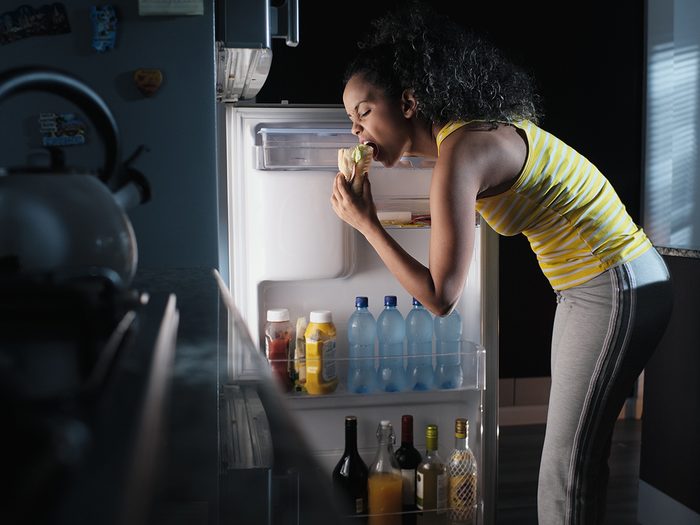
Foods nutritionists never eat late at night
We all remember a youthful night or two (or ten) fueled by energy drinks, pizza, and cookies. But it wasn’t good for us then, and it’s even worse now. In fact, when you eat can be as important as what—and if you make poor food choices late at night, you can do even more damage to your health. We surveyed registered dietitians across North America to find out what they never, ever eat before turning in.
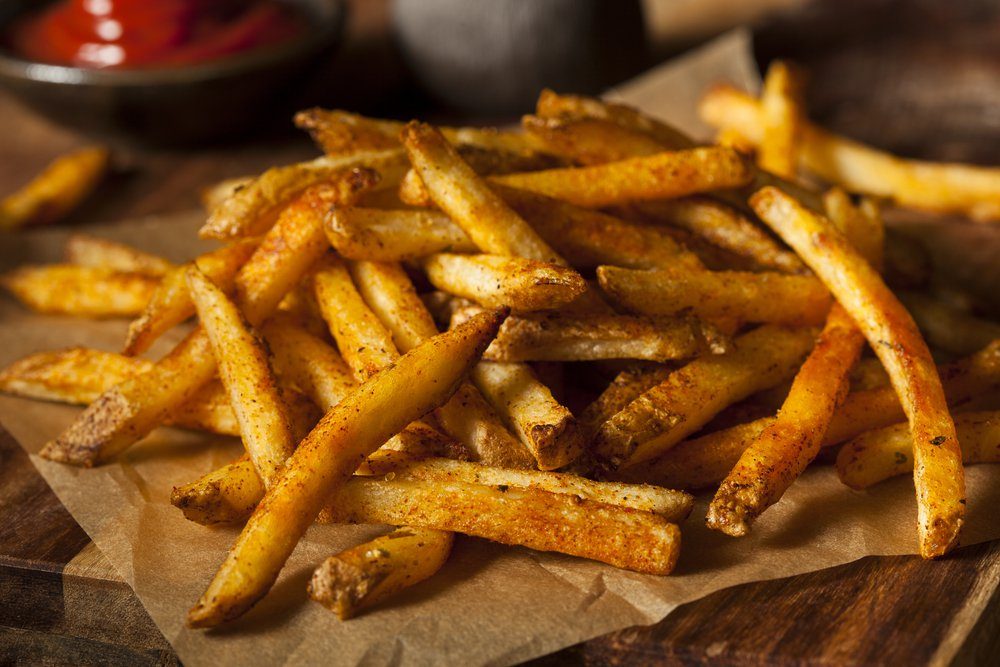
French fries
“Sleep is so important to our overall wellness, so I definitely try to avoid habits that will interfere with quality sleep,” says Caroline West Passerrello, RD. “To that end, I rarely eat fried foods and never eat them a few hours before bed. The high fat content will keep your body focused more on digestion than sleep, and it may also lead to heartburn or reflux if you are prone to either.”
Find out more seemingly innocent habits that are sabotaging your sleep.
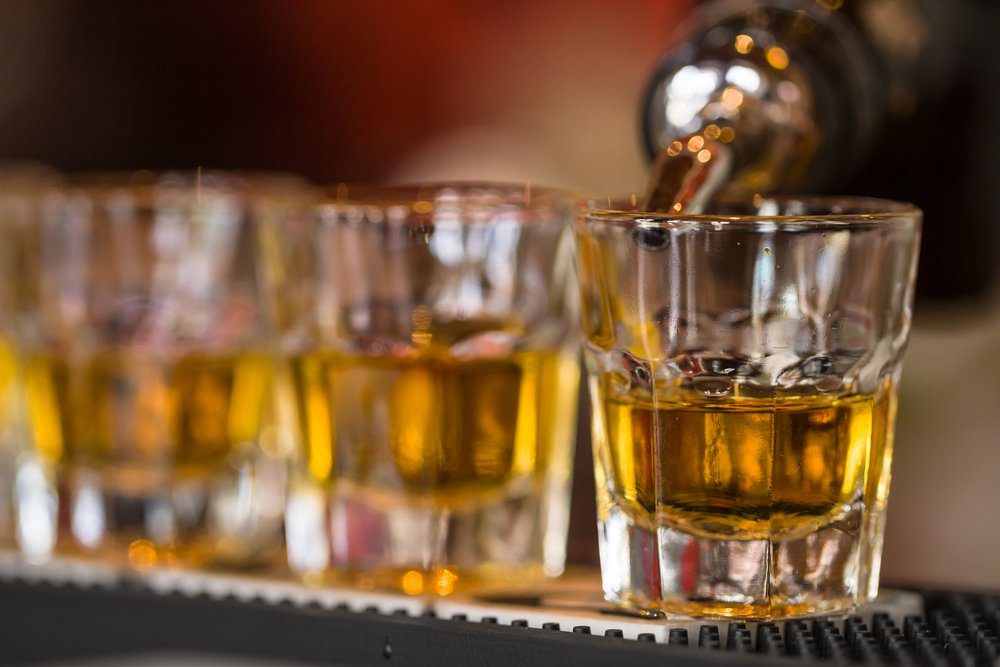
Alcohol
Sure, a glass of wine will mellow you out—it is a depressant. But booze has been shown to decrease rapid eye movement (REM) sleep, and that interferes with your sleep quality so that you wake up feeling less rested, warns Libby Mills, a registered dietitian and culinary nutrition consultant in Philadelphia.
Find out what booze really does to your body.
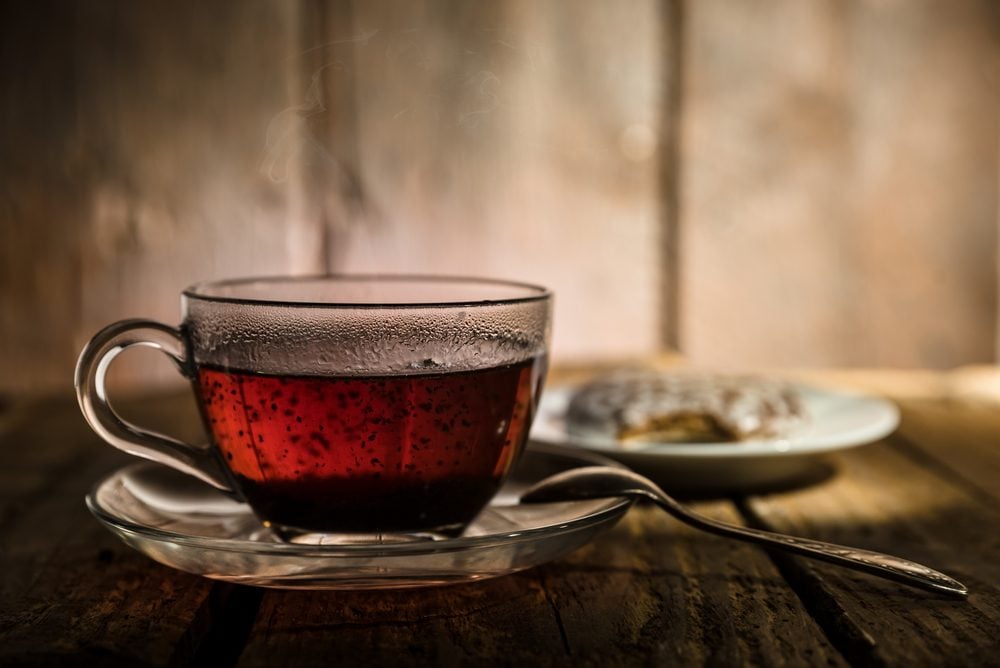
Tea
It’s zero calories and soothing—what’s not to love? But black, green and white teas—as well as chai—all contain caffeine. Even if you stick to an herbal tea like chamomile, you have to make sure not to add sweeteners—they contribute to cavities—or lemon, which has diuretic properties. “A brew of herb water and a diuretic—no matter how slight—adds up to an undesirable journey to the bathroom sometime in the night,” says Mills.
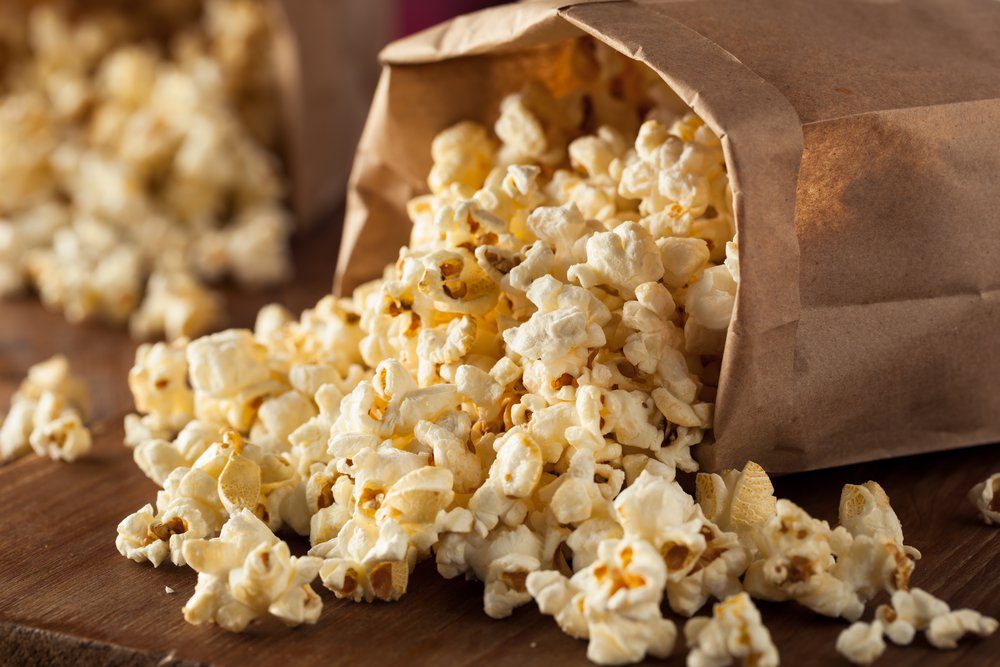
Popcorn
It’s the classic movie-watching snack, but even when you hold the extra butter, there’s a good reason to savour this whole-grain snack earlier in the day: salt. “Before bed, I don’t eat anything too salty because it will make me thirsty in the night,” says Debbie Petitpain, RD, spokesperson for the Academy of Nutrition and Dietetics. Salted nuts and MSG-laden food can have a similar effect.
Here’s what happens to your body when you eat too much salt.
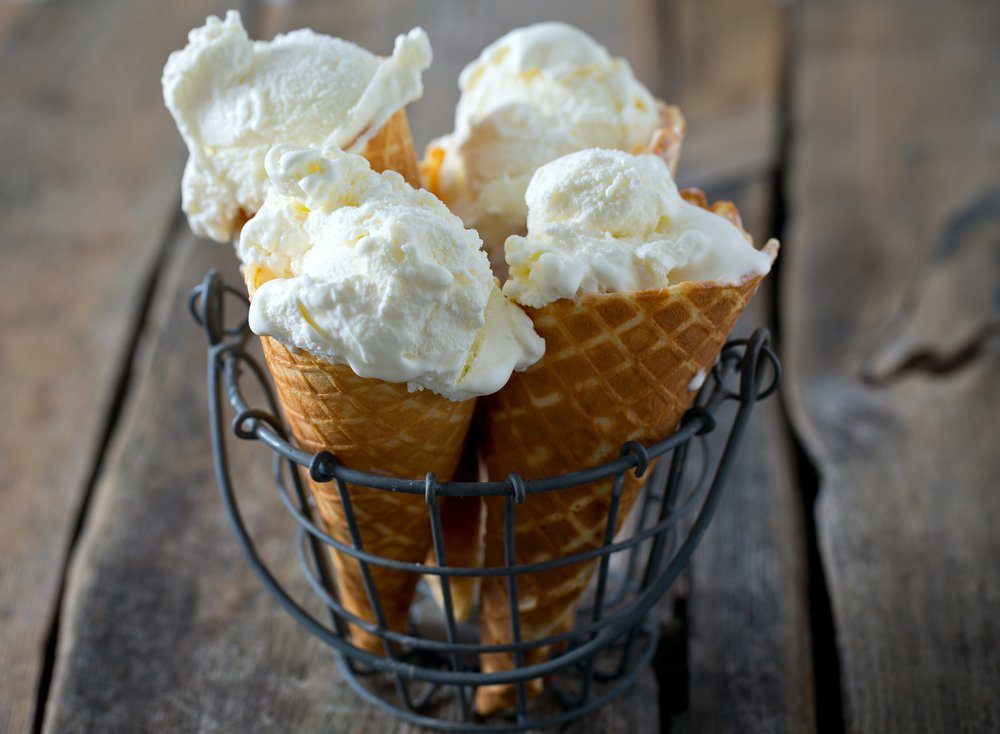
Ice cream
Ice cream is full of fat, which can trigger indigestion and reflux, but that’s not why nutritionist Petitpain resists this tempting dairy treat. “I avoid foods that I’m likely to overeat so I don’t go to bed over-full,” she says.
Here’s expert advice on how to fix your sleep schedule.
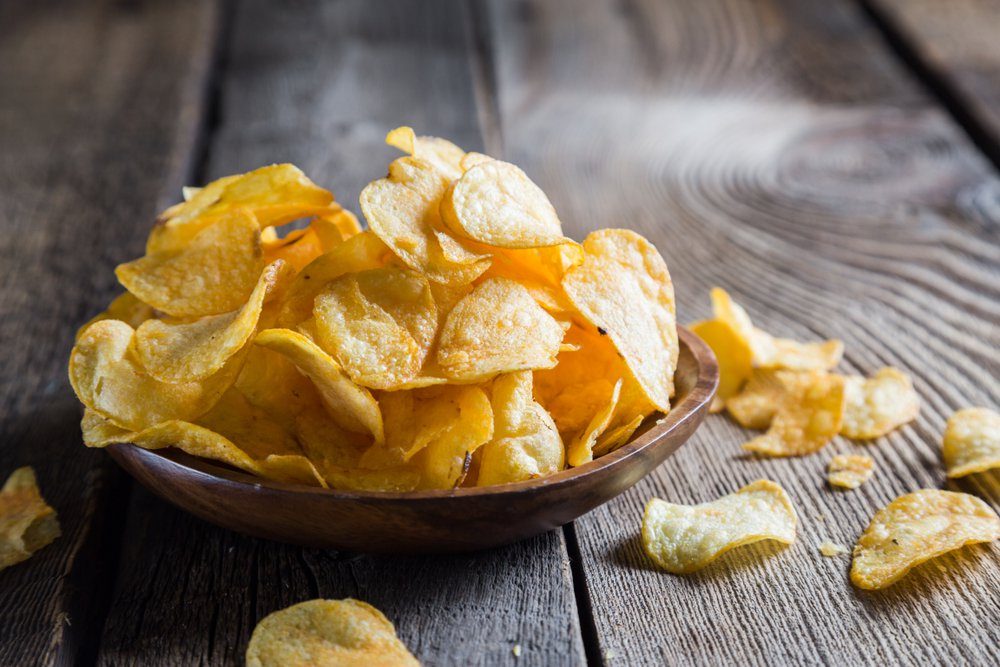
Potato chips
These are the trifecta of greasy, fatty, and salty—things that increase your odds of heartburn and getting up in the night for a drink. They’re also tougher for your body to digest, says Bonnie Taub-Dix, RDN, author of Read It Before You Eat It: Taking You from Label to Table.
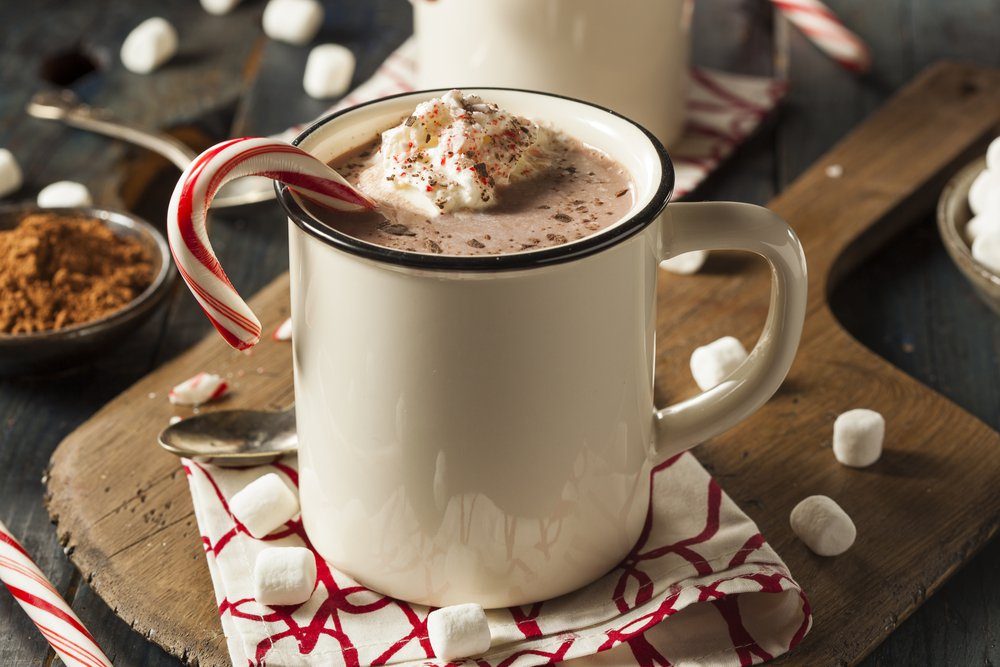
Hot chocolate
It’s cozy and comforting, and practically identical to a warm glass of milk—right? Milk delivers tryptophan which boosts relaxing neurotransmitters like serotonin, helping you wind down for the day. But people tend to forget that chocolate contains caffeine, and that can fire you up, says Angel Planells, RD.
Serious about getting high-quality shut-eye? Follow our ultimate sleep hygiene checklist.
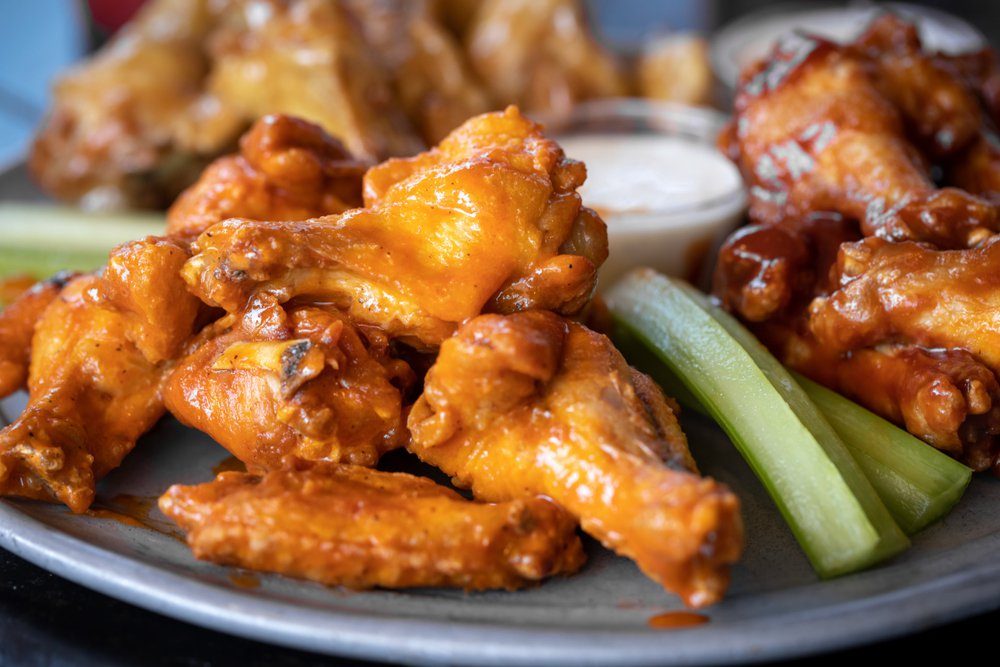
Hot sauce
For some reason, Buffalo wings just taste better at 11 p.m. The issue is that spicy foods are a top cause of GERD—gastroesophageal reflux disease—a chronic condition that regularly effects five million Canadians. Laying down soon after eating very spicy dishes or other GERD triggers such as fatty or greasy foods can make your symptoms worse, says Planells.
Find out exactly what makes hot sauce hot.
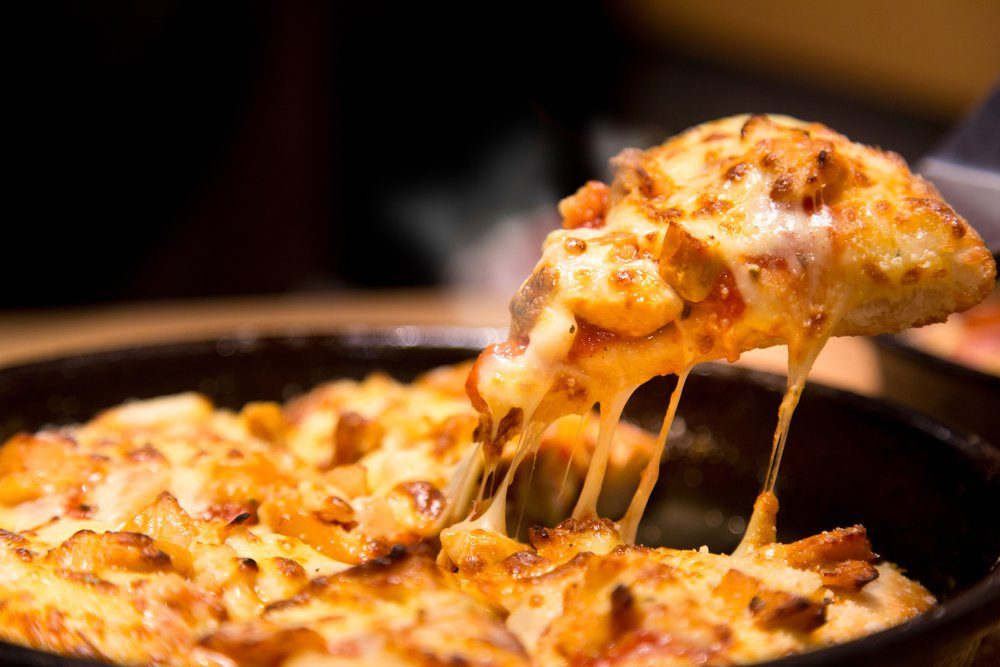
Pizza
There’s nothing like a late-night pizza delivery, but it’s just another greasy, high-fat food with the potential to bog down your digestive system and trigger heartburn. “The goal is to feel relaxed prior to bed, and you may struggle to get to sleep if your body is trying to digest a very complex meal,” says Planells.
These are the worst foods for your brain.
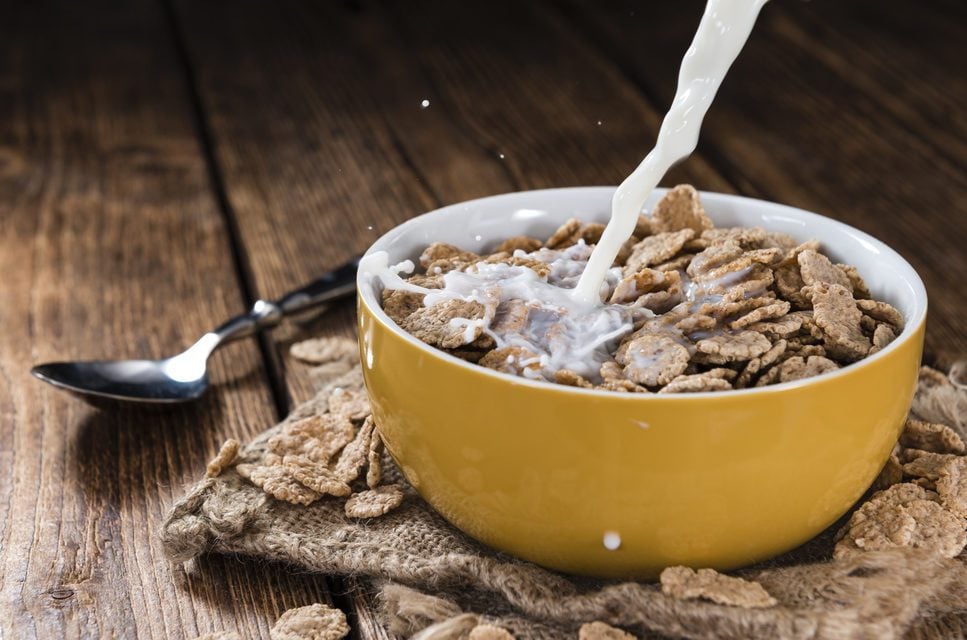
Cereal
It’s oh-so-convenient, and carby goodness at your fingertips is hard to resist. But cereal is notoriously sweet—according to one report, 92 per cent contained added sugar, and the average cold breakfast cereal marketed to adults was 18 per cent sugar by weight.
Find out how sugar is making you sick.
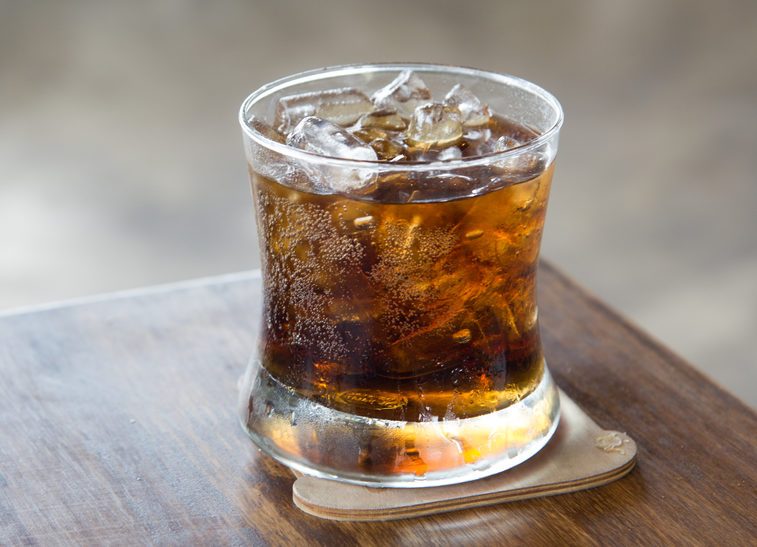
Carbonated beverages
Fizzy drinks keep you full on zero calories, but all those bubbles can contribute to indigestion and keep you tossing and turning, warns Leah Kaufman, RD, a New York City-based nutritionist. The fizz can also be hard on your tooth enamel. Stick with regular water—but not too much—before bedtime.
Next, check out the best foods to eat before bed.